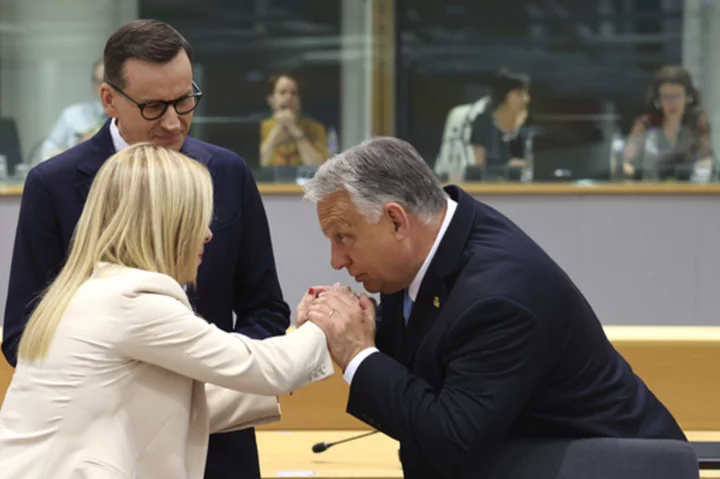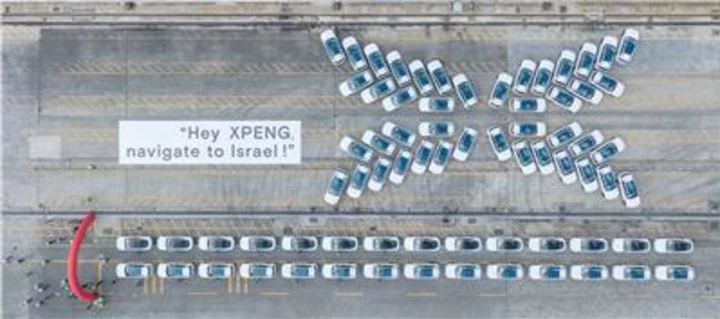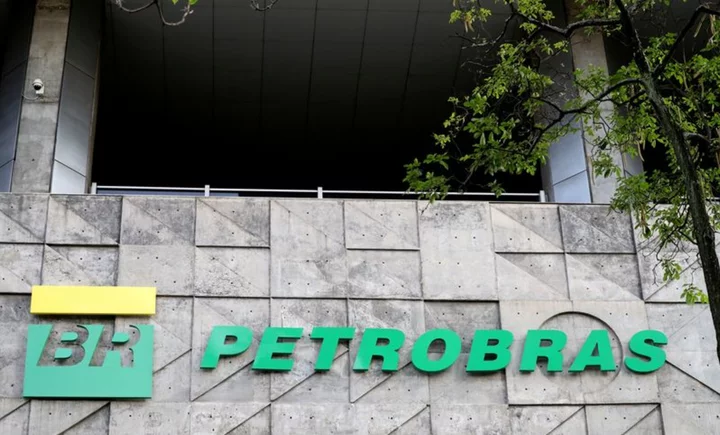BRUSSELS (AP) — European Union leaders opened a second day of migration talks Friday as Poland and Hungary continued to block progress after they were outvoted earlier this month on a plan to share refugees arriving in Europe among the 27 member countries.
Some leaders said that Poland and Hungary seemed to be fighting a battle started years ago, when well over 1 million migrants entered Europe, most of them refugees fleeing Syria, in 2015 and sparked one of the bloc's biggest crises. Others said the two simply must not be permitted to break EU rules.
“My feeling was there’s a lot of bitterness about the debates on migration from 2015,” Estonian Prime Minister Kaja Kallas told reporters at EU headquarters in Brussels. “If you just say no to everything and everybody else tries to compromise that doesn’t really work out.”
Slovenian Prime Minister Robert Golob said that “Hungary was totally adamant” about having the issue removed altogether from the leader's final summit communique. “It was not about let’s do it this way or the other way. It was like, ‘we don’t want to see migration being mentioned at all.’”
Golob confirmed that European Council President Charles Michel, who is chairing the summit, is likely to issue a separate chairman's statement that does not require the endorsement of member countries.
Earlier this month, EU countries made a breakthrough on asylum law reform, sealing an agreement on a plan to share responsibility for migrants entering Europe without authorization.
The deal balanced the obligation for countries where most migrants arrive to process and lodge them against the requirement for other members to provide support, whether financial or by hosting refugees. Countries refusing to take migrants in could pay 20,000 euros ($21,400) per person instead.
The agreement was sealed with a qualified majority vote of around two-thirds. Only Poland and Hungary voted against. Their aim at the summit has been to challenge the legal validity of that decision.
Luxembourg Prime Minister Xavier Bettel said that caving in to them would set a dangerous precedent.
“The fact is, Poland and Hungary do not agree with the (EU) treaty," he told reporters. “It has been decided, so we cannot come back and say now, ‘ok, we do not agree,’ because then everybody will open the list of all the decisions we took the last 10 years.”
Ahead of the meeting, Poland’s prime minister had insisted that his country wouldn't be forced to accept European Union rules on migration, and he vowed to veto any plan that might force countries to take in refugees.
“An attack on Europe is underway. Europe’s borders are not secure. The safety of the inhabitants of our continent is at stake,” Prime Minister Mateusz Morawiecki said in a video statement. He said he would propose “a plan for secure borders” to the leaders.
Morawiecki said that his “plan is clear — ‘no’ to forced relocation of immigrants, ‘no’ to violations of veto rights by individual states and ‘no’ to violations of the principle of freedom, the principle of decision-making by states alone, ‘no’ to Brussels-imposed penalties on states.”
Poland and Hungary, along with the Czech Republic, refused to accept migrant quotas hastily imposed in 2015. The EU’s top court ruled in 2020 that they had failed to respect the bloc’s laws.
The number of people trying to enter the EU without authorization is on the rise. The border and coast guard agency Frontex said that more than 50,300 attempts were made from January to May. It’s more than double in the same period last year, and the most since 2017. But migrant arrivals in Europe dwarf those seen in Turkey, Lebanon or Jordan.
At the same time, Poland is looking after around 1 million refugees from Ukraine.
Any attempt to court the help of Italian Prime Minister Giorgia Meloni, whose anti-migrant government abstained in the vote on the breakthrough deal, appears to have failed.
“I perfectly understand the point of views of nations who have different problems with migration. But I think that the agreement that was found was a balanced one,” Meloni told reporters.
While Hungary and Poland are unlikely to succeed in their quest to have the rules overturned, their anti-immigrant stance — backed by other members like Austria, Denmark or Sweden — has helped ensure that the EU’s policies focus on keeping people out and quickly deporting those not entitled to stay.
___
Vanessa Gera in Warsaw contributed.
___
Follow AP’s migration coverage at https://apnews.com/hub/migration









